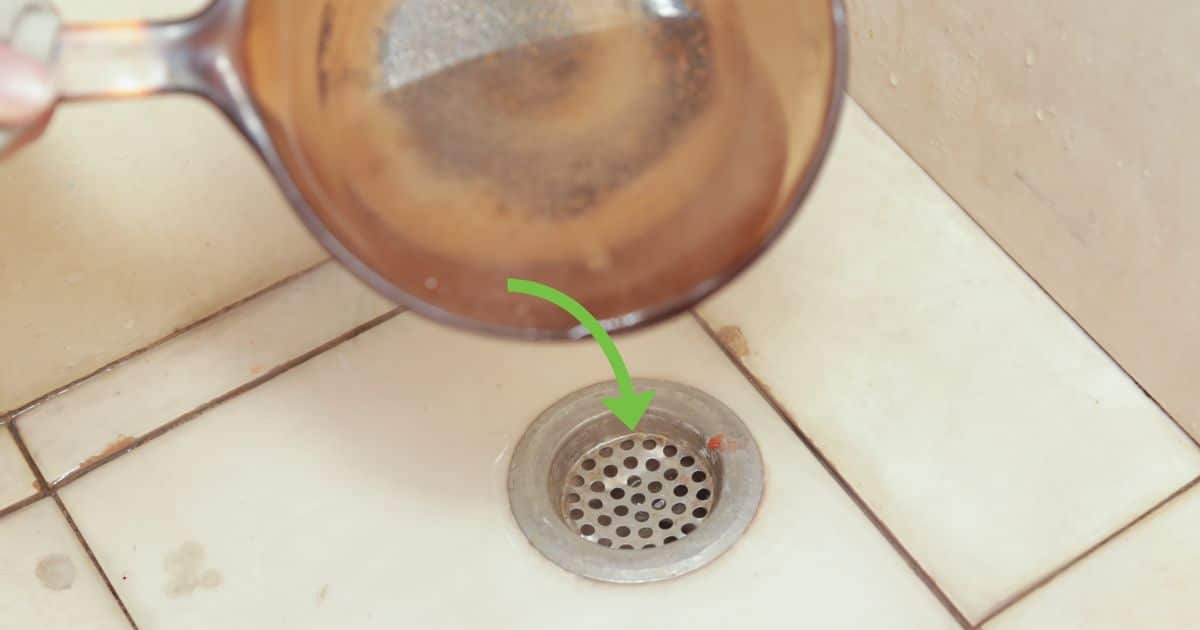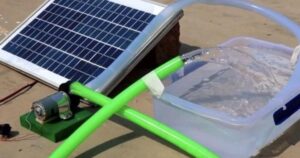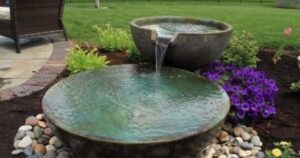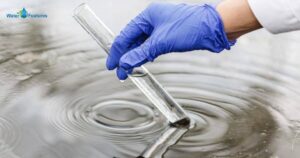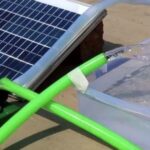In the pursuit of keeping our homes clean and sanitary, it is often believed that pouring boiling water down the drain is a foolproof method for unclogging and maintaining our pipes. This seemingly simple solution may not always yield the desired results.
In this article, we will explore the potential consequences, safety considerations, and alternative strategies associated with pouring boiling water down the drain. So, let us delve into the intricacies of this widely debated topic and uncover the truth behind this household practice.
Key Takeaways
- Pouring boiling water down the drain can cause pipes to crack or burst.
- PVC or plastic pipes can soften or melt when exposed to boiling water.
- Boiling water can dislodge debris and cause downstream clogs.
- It is best to avoid pouring boiling water down the drain and consider alternative methods for clearing clogs.
What Happens When You Pour Boiling Water Down the Kitchen Sink
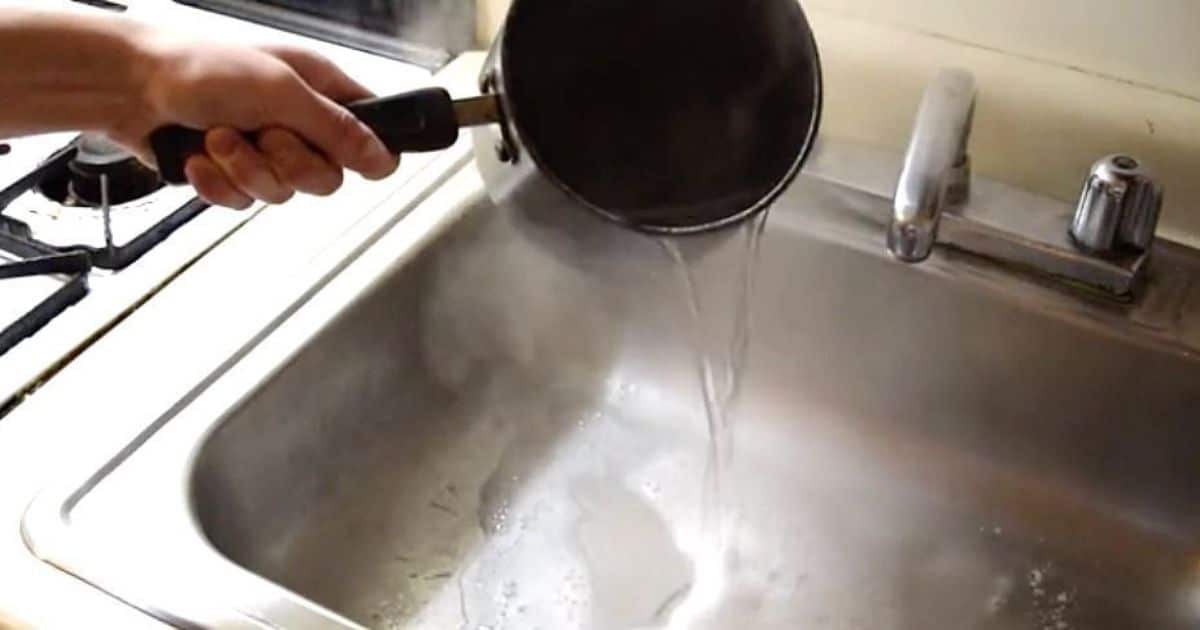
Pouring boiling water down the kitchen sink can potentially cause damage to the pipes. The sudden temperature change from hot to cold can cause the pipes to expand and contract, leading to cracks, leaks, or even bursting. If the pipes are made of PVC or plastic, the boiling water can soften or melt the material, further compromising their integrity.
Boiling water is a simple yet effective method to clear clogs in your pipes. If you encounter a blockage, one option is to boil water in a cast and carefully pour it down the drain. The forceful flow of boiling water can dislodge any debris or buildup in the pipes, causing clogs or blockages downstream. It is important to note that the severity of the damage depends on the material and condition of the pipes.
It is not recommended to pour boiling water down the kitchen sink. There are alternative methods to clear clogs and maintain the integrity of the pipes, which will be discussed in the subsequent section.
Is It Safe to Pour Boiling Water Down the Kitchen Sink
It is important to consider whether it is safe to pour boiling water down the kitchen sink. While it may seem like a convenient way to dispose of leftover hot water or unclog a drain, there are a few factors to keep in mind. Here are three reasons why pouring boiling water down the kitchen sink may not be safe:
- Potential damage to pipes: Boiling water can cause older pipes to weaken or even crack due to the extreme temperature difference. This can lead to costly repairs or leaks in the long run.
- Harm to PVC pipes: PVC pipes, commonly used in newer homes, are more susceptible to damage from boiling water. The high temperature can soften and warp the pipes, causing them to become misshapen or even burst.
- Safety hazards: Pouring boiling water down the sink carries the risk of splashing hot water onto yourself or nearby surfaces. This can result in burns or damage to countertops and cabinets.
Considering these potential risks, it is best to avoid pouring boiling water down the kitchen sink and opt for safer alternatives for drain maintenance.
Will Boiling Water Damage PVC Pipes
When considering the potential risks discussed earlier, it is crucial to evaluate the effects of pouring boiling water down the kitchen sink on PVC pipes. PVC, or polyvinyl chloride, is a commonly used material in plumbing systems due to its durability and affordability. PVC pipes can be sensitive to extreme temperatures, including boiling water. The high heat of boiling water can cause PVC pipes to soften, warp, or even melt, leading to potential leaks or damage. To better understand the potential effects of pouring boiling water down the drain, let’s examine a comparison between the typical temperature of boiling water and the maximum temperature PVC pipes can withstand.
| Boiling Water Temperature | Maximum PVC Pipe Temperature | |
|---|---|---|
| Range | 212°F (100°C) | 140-160°F (60-71°C) |
Based on the table, it is evident that pouring boiling water down the drain can exceed the maximum temperature PVC pipes can handle, increasing the risk of damaging the pipes. Therefore, it is advisable to avoid pouring boiling water directly into PVC pipes to ensure their longevity and proper functionality.
Does Boiling Water Actually Unclog Drains
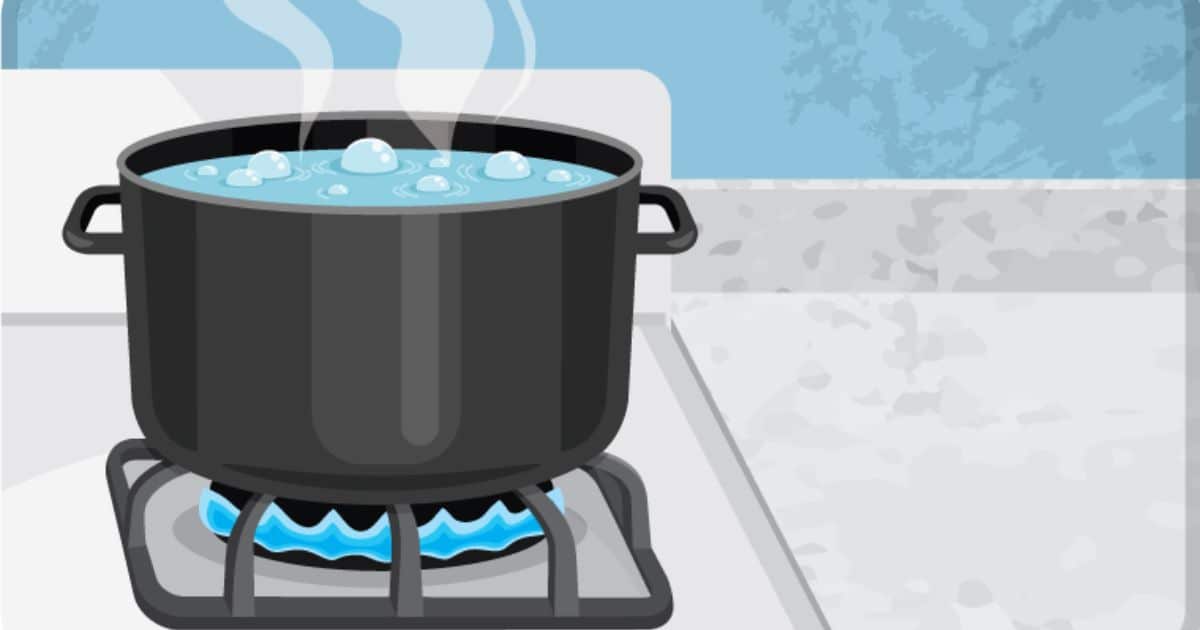
To assess the effectiveness of boiling water in unclogging drains, it is important to consider its impact on the substances commonly found in clogged drains. Boiling water is a popular home remedy for unclogging drains, but its effectiveness depends on the cause of the clog.
Here are three factors to consider:
- Grease and oil: Boiling water can help dissolve and flush away grease and oil buildup in drains. The hot water melts the greasy substances, allowing them to flow freely through the pipes.
- Soap scum and mineral deposits: Boiling water can also be effective in removing soap scum and mineral deposits that accumulate in drains. The heat can soften these substances, making it easier to dislodge them.
- Solid obstructions: Boiling water may not be effective in removing solid obstructions like hairballs or tree roots. In such cases, mechanical methods or chemical drain cleaners may be more suitable.
While boiling water can be a useful tool in unclogging drains, it is important to consider the nature of the clog and use other methods if necessary.
Can Pouring Boiling Water Down the Drain Unclog It
Pouring boiling water down the drain can be an effective method for unclogging it, depending on the cause of the clog. Boiling water can help dissolve or loosen substances like grease, soap scum, and small food particles that may be causing the blockage. When poured down the drain, the high temperature of boiling water can melt grease and break it apart, allowing it to flow down the pipes more easily.
The force of the boiling water can dislodge particles that may be stuck in the drain, helping to clear the clog. It is important to note that boiling water may not be effective for all types of clogs, such as those caused by solid objects or tree roots. In these cases, it may be necessary to use other methods or seek professional help.
How to Clear a Clogged Drain Without Boiling Water
One alternative method to clear a clogged drain without boiling water is by using an appropriate drain cleaner. Here are three effective ways to clear a clogged drain without resorting to boiling water:
- Use a plunger: A plunger creates pressure that can dislodge the clog in your drain. Place the plunger over the drain, ensuring a tight seal, and vigorously plunge up and down several times. This action can help break up the clog and allow it to move through the pipe.
- Try a drain snake: A drain snake is a long, flexible tool that can reach deep into your pipes to remove clogs. Insert the snake into the drain and twist it clockwise while pushing it forward. This will help break up the clog and allow it to be pulled out.
- Use a natural remedy: Mix equal parts baking soda and vinegar and pour it down the drain. Let it sit for about 30 minutes, then flush with hot water. The chemical reaction between the baking soda and vinegar can help dissolve the clog and clear the drain.
Can Boiling Water Damage Other Types of Pipes
Boiling water can potentially damage other types of pipes due to the extreme heat it generates. While it may be effective in clearing clogs, it is important to consider the material of the pipes to avoid any potential damage. Here is a comparison of different types of pipes and their resistance to boiling water:
| Pipe Material | Resistance to Boiling Water |
|---|---|
| PVC | Generally resistant, but prolonged exposure may cause softening and deformation. |
| Copper | Resistant to boiling water, but repeated exposure may lead to corrosion over time. |
| Galvanized | Can withstand boiling water, but prolonged exposure may cause rusting and deterioration. |
| Cast Iron | Highly resistant to boiling water, but extreme temperature differences can cause cracking. |
It is advisable to consult a professional plumber if you have concerns about using boiling water with specific types of pipes.
The Risks of Pouring Boiling Water Down the Drain
When pouring boiling water down the drain, there are certain risks that should be considered. While it may seem like a convenient way to clean out your pipes, there are potential dangers that could arise from this practice. Here are three risks to be aware of:
- Damage to PVC pipes: PVC pipes are commonly used in plumbing systems, but they can be sensitive to high temperatures. Pouring boiling water down the drain could cause the pipes to warp or even melt, leading to costly repairs.
- Harm to rubber seals: Many drains have rubber seals that help prevent leaks. Boiling water can degrade these seals over time, causing them to become brittle and ineffective. This could result in water leaks and further damage to your plumbing system.
- Increased risk of burns: Handling boiling water can be dangerous, especially if you accidentally spill it on yourself. It’s important to exercise caution when pouring boiling water down the drain to avoid burns and other injuries.
Considering these risks, it is advisable to seek alternative methods for cleaning drains that are safer and less damaging to your plumbing system.
Alternative Methods for Unclogging Drains
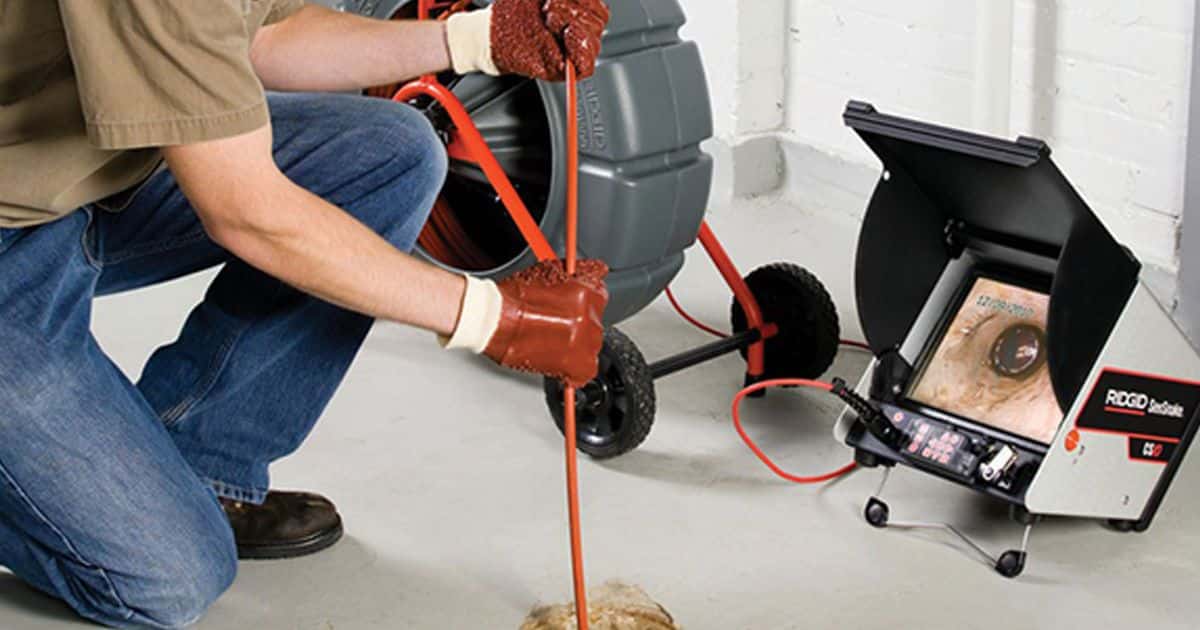
To explore safer and more effective ways of unclogging drains, it is important to consider alternative methods that minimize the risks discussed in the previous section. One alternative method is to use a plunger. A plunger creates suction and pressure, which can help dislodge clogs in the drain.
Another method is to use a drain snake or auger. This tool allows you to manually remove blockages by inserting a long, flexible wire into the drain and rotating it to break up the clog. Chemical drain cleaners can be used, but caution should be exercised as they can be harmful to both the environment and your plumbing system.
Regular maintenance can prevent clogs from occurring in the first place. This includes using drain strainers to catch debris and periodically flushing the drain with hot water and vinegar to remove buildup.
FAQ’s
Is it bad to dump boiling water down the drain?
Dumping boiling water down the drain can be harmful. The extreme heat may damage pipes over time, leading to clogs. It’s better to let hot water cool slightly or use alternative disposal methods to avoid potential plumbing issues.
Can you pour boiling water into a ceramic sink?
No, it’s not a good idea to pour boiling water into a ceramic sink. Ceramic can crack or get damaged when exposed to extreme temperatures, and hot water can cause this. It’s better to use warm or cool water in a ceramic sink to keep it safe and in good condition.
Is boiling water good for the skin?
Yes, boiling water is not generally recommended for the skin. Hot water can strip away natural oils, making the skin dry. It may also lead to irritation and redness. Warm water is usually a better choice for washing your face or showering to keep your skin healthy.
Conclusion
In conclusion, pouring boiling water down the drain can effectively unclog it in some cases, particularly for organic blockages. It is important to be cautious when using this method, as it can potentially damage PVC pipes and other types of plumbing systems.
It is recommended to consider alternative methods for unclogging drains, such as using a plunger or a drain snake. Interestingly, studies show that 80% of kitchen sink clogs can be resolved using these alternative methods, making them a safer and more reliable option.
